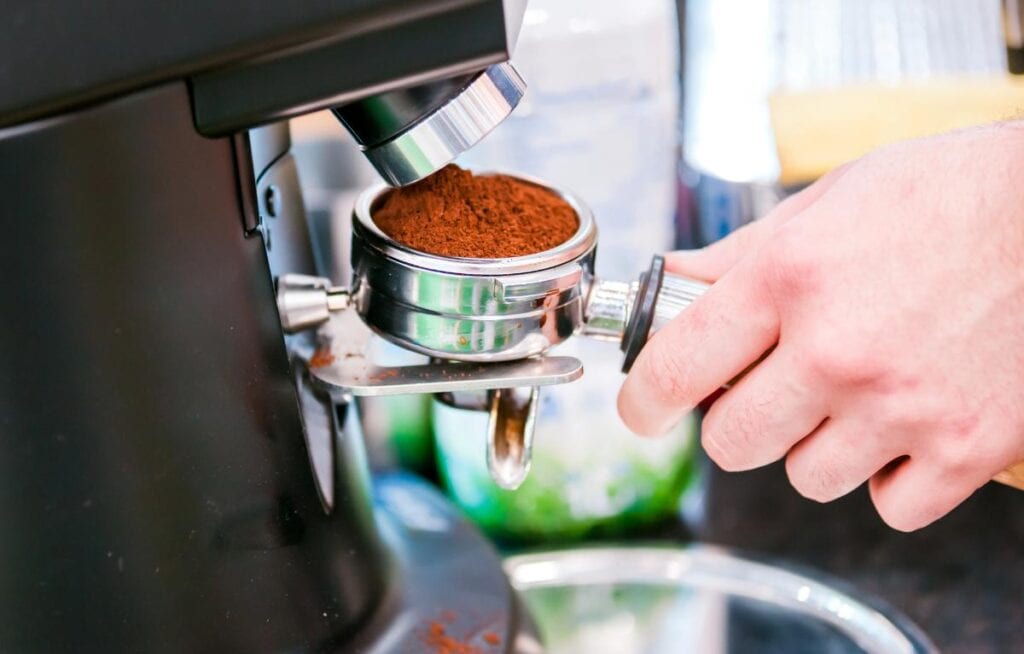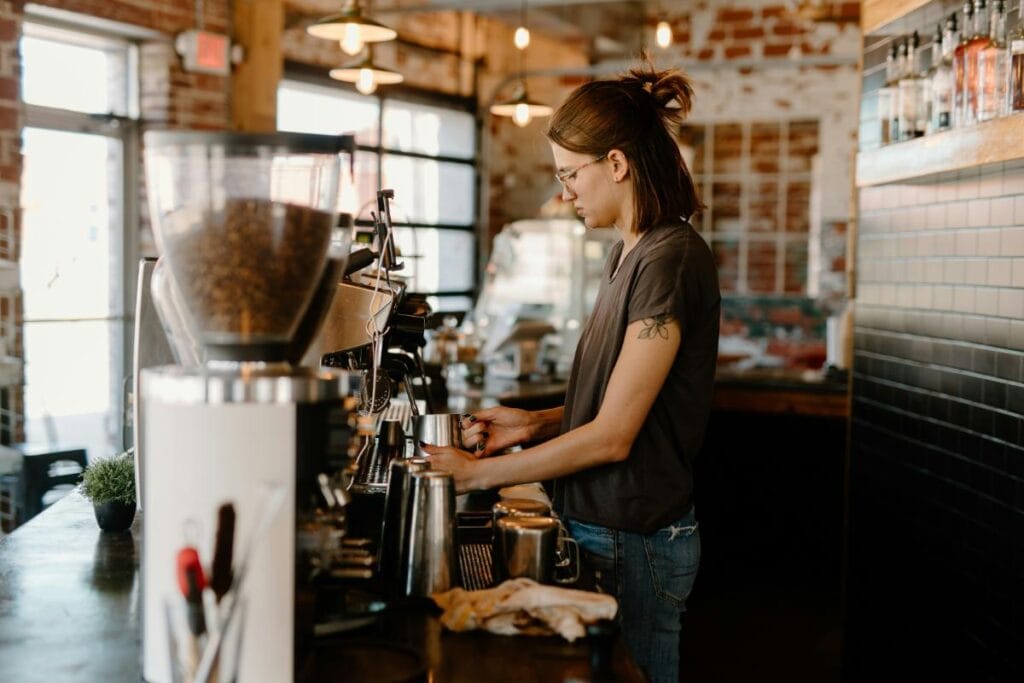
Your morning coffee tastes like burnt water again. The supermarket beans you grabbed last week promised “rich flavour” but delivered disappointment instead. Sound familiar?
Finding decent coffee beans in the UK shouldn’t be this hard, but most shoppers get overwhelmed by marketing claims and fancy packaging. The truth is simpler than coffee companies want you to think.
Good beans come from specific places, get roasted properly, and reach you while they’re still fresh. Everything else is just noise designed to sell you mediocre coffee at premium prices.
What Makes Coffee Beans Worth Buying
Fresh roasting beats everything else. Beans lose flavour fast after roasting; within weeks, not months. That bag sitting on the supermarket shelf since last Christmas won’t make good coffee, no matter what the label claims.
Origin matters more than most people realize. Ethiopian beans taste different from Colombian ones. Brazilian coffee has its own character. These aren’t subtle differences; they’re night and day when you know what to look for.
The processing method also affects flavour. Natural processing creates fruity notes. Washed processing gives cleaner, brighter tastes. Most UK roasters tell you which method they used, but only if you buy from the right places. The roast date should be printed clearly on every bag. If you can’t find it, buy something else. Good roasters aren’t shy about freshness.
Understanding Different Bean Types
Arabica dominates the specialty market for good reason. It tastes better than Robusta in most applications. Arabica grows at higher altitudes, develops complex flavours, and contains less caffeine.
Robusta gets used mainly in cheap blends and espresso, where you need an extra caffeine kick. It tastes harsher but costs less to produce. Some Italian-style espresso blends use small amounts for crema and body.
Single-origin beans come from one farm or region. Blends mix beans from different places to create consistent flavour profiles. Neither approach is inherently better; it depends on what you’re after.
“The coffee market is experiencing significant growth, driven by several key factors. Consumers increasingly seek environmentally responsible brands, especially millennials and Gen-Z. Yet the primary reasons people buy coffee are still taste and indulgence,” explains Felipe Cabrera, coffee industry consultant and CEO of Ad Astra Consulting.
Roast Levels Explained
Light roasts preserve original character. You taste the farm, not the roast. Ethiopian light roasts might taste like flowers and berries. These work best with pour-over methods that highlight delicate flavours.
Medium roasts balance origin and roasted flavours. Most people prefer this middle ground. You get complexity without overwhelming brightness or heaviness.
Dark roasts develop smoky, chocolatey notes that mask origin differences. They’re not necessarily stronger; just more roasted-tasting. Good for espresso and people who like bold flavours.
| Roast Level | flavour Profile | Best Brewing Method |
| Light | Fruity, floral, bright | Pour-over, filter |
| Medium | Balanced, sweet | Any method |
| Dark | Bold, smoky, chocolatey | Espresso, French press |
UK Coffee Market Reality
Britain drinks 98 million cups of coffee daily, up from 70 million in 2008. Coffee has overtaken tea as the preferred drink for younger generations, with 37% of under-35s choosing coffee over tea.
The UK coffee market reached £1.9 billion in 2024, with specialty coffee driving much of that growth. People want better quality beans, not just more coffee.
Independent roasters have exploded across the UK. Manchester, Bristol, Edinburgh, and London host dozens of small-batch roasters who source directly from farms. These local businesses often produce better coffee than mass-market brands.
Where to Buy Quality Beans
Local roasters beat online giants for freshness. Coffee roasted this week tastes better than coffee roasted last month, regardless of shipping speed. Check for roasteries in your area first.
Best coffee beans UK searches often lead to commercial sites pushing whatever pays the highest commission. Better to research specific roasters and read actual customer reviews.
Farmers’ markets sometimes feature local roasters selling directly to consumers. You can smell before buying and ask questions about sourcing and roasting methods.
Coffee shops that roast their own beans often sell retail bags. If you like their coffee in the café, buying their beans for home makes sense.
Balance Coffee and Quality Standards
Balance Coffee represents the kind of UK roaster worth supporting. They source beans from independent growers, roast in small batches, and focus on sustainability without sacrificing flavour.
Their approach shows what specialty coffee should be: transparent sourcing, fresh roasting, and honest pricing. No fancy packaging or marketing gimmicks, just good coffee done properly.
Brewing Method Matching
Your brewing method determines which beans work best. Espresso needs beans that can cut through milk and create decent crema. Pour-over highlighting subtle flavours calls for different profiles.
The French press works with almost any roast level, but especially suits medium to dark roasts. The metal filter lets oils through, creating a fuller body.
Cold brew requires coarse grinding and longer extraction times. Lighter roasts often taste sour in cold brew, while medium roasts provide better balance.
Avoiding Common Mistakes
Don’t buy more than you’ll use in two weeks. Even properly stored beans lose flavour over time. Better to buy smaller quantities more often.
Pre-ground coffee goes stale faster than whole beans. If you don’t own a grinder, buy one before worrying about premium beans. A £30 burr grinder improves coffee more than expensive beans ground weeks ago.
flavoured coffee usually means lower-quality beans covered up with artificial tastes. If you need vanilla or hazelnut flavouring, add it to the finished coffee instead.
Storage and Freshness
Store beans in airtight containers away from light and heat. Those clear glass jars look nice, but expose coffee to flavour-destroying light. Opaque containers work better.
Don’t freeze coffee beans unless you’re storing them for months. Daily freezer trips create condensation that damages flavour.
Buy from roasters who date their bags clearly. Avoid anything without roast dates; it’s probably weeks or months old already.
Cost vs Quality Reality
Cheap coffee is cheap for reasons. Low-grade beans, stale roasting, poor storage, and minimal quality control all save money while destroying flavour.
Premium doesn’t always mean better, but quality coffee costs more than supermarket brands. Expect to pay £8-15 per bag for specialty beans versus £3-5 for mass-market coffee.
The price difference disappears when you calculate the cost per cup. That £12 bag of specialty coffee makes 20-25 cups, or about 50p each. Much less than café prices for better quality.
Finding great coffee beans in the UK gets easier once you know what to look for. Focus on fresh roasting, clear sourcing information, and local roasters who care about quality over marketing. Your morning coffee will thank you.

Frequently Asked Questions
How long do coffee beans stay fresh after roasting?
Beans peak 3-14 days after roasting and remain good for 2-4 weeks. After that, flavours fade noticeably. Always check roast dates and buy accordingly.
Should I buy Arabica or Robusta beans?
Arabica tastes better for most applications. Robusta has more caffeine but harsher flavours. Most specialty roasters use 100% Arabica or Arabica-dominant blends.
What’s the difference between single-origin and blended coffee?
Single origin comes from one farm or region, showcasing unique terroir. Blends mix different origins for a consistent flavour. Both can be excellent depending on the roaster’s skill.
How should I store coffee beans at home?
Keep them in airtight, opaque containers at room temperature. Avoid fridges, freezers, and direct sunlight. Buy only what you’ll use within 2-3 weeks for the best flavour.
